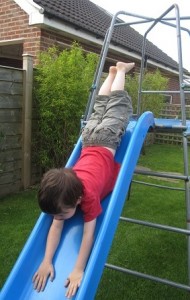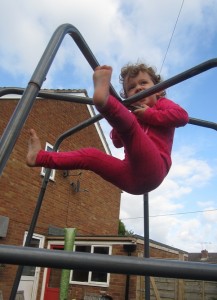Sundays aren’t as upsetting as they used to be. Watching a husband put his arm around his wife or share a hymnal doesn’t bring tears like it did a year ago, and last Sunday I even felt sincere delight watching the senior couple directly in front of me. As the congregation sang a rousing hymn, they not only shared the hymnal, they shared something else.
The husband, as he sang, occasionally glanced at his wife’s face. Every so often she looked up at him, and they shared a knowing smile. Part of the hymn they sang from memory, to each other, face-to-face. Once he leaned over and whispered something in her ear. As he did, she leaned toward him slightly, just enough to communicate acceptance and love.
On the hymn’s 3rd verse, these two 70-somethings standing side-by-side, began slowly swaying together, left and right, to the hymn’s cadence. It was so subtle an observer glancing at the congregation wouldn’t have noticed, but since they were right in front of me, I did. And it was charming.
Two things popped into my head: (1) gratitude that I wasn’t crying while witnessing this marital harmony, and (2) when one of them dies, the other will suffer. But that’s the natural consequence of a good marriage. When the time comes, even though tears will flow, the one left behind won’t wish away the years they had together to spare the pain of separation when it ends.
Most of life’s valuable commitments put us at risk for sadness, even sharp, agonizing pain: a happy marriage faces eventual widowhood and loneliness; parenthood brings incredible joy but also the misery of saying goodbye … over and over again; even taking on a family pet includes knowing we’ll one day have to bury it. Our world is full of opportunities to commit, each one involving a sacrifice, a risk, or both.
All except one.
The most important commitment any of us can ever make includes no price to pay at the end of it, and that’s our commitment to Christ. The risk and sacrifice for the greatest treasure on earth was all made by him, not us. Why he would ever agree to do what he did in order to get us is beyond figuring out. With all our imperfections and sins, we know we’re not worth the sacrifice he had to make, but apparently he thought we were. Mindboggling.
Unlike at the end of our human commitments, most of which finish with a goodbye, the final result of a commitment to Christ is an eternal hello and a life so unique and fresh we don’t now have the ability to picture it. The commitments of this world all come to an end, but signing on with Jesus is a forever partnership.
This morning, back in church, I scanned the congregation for the loving couple I’d seen the week before, but they weren’t there. When I asked, I learned they’d gone on a long trip to Europe. A second honeymoon? No, just making the most of an ongoing commitment to one another.
“At one time we thought of Christ merely from a human point of view. How differently we know him now! The old life is gone; a new life has begun!” (2 Corinthians 5:16-17)








